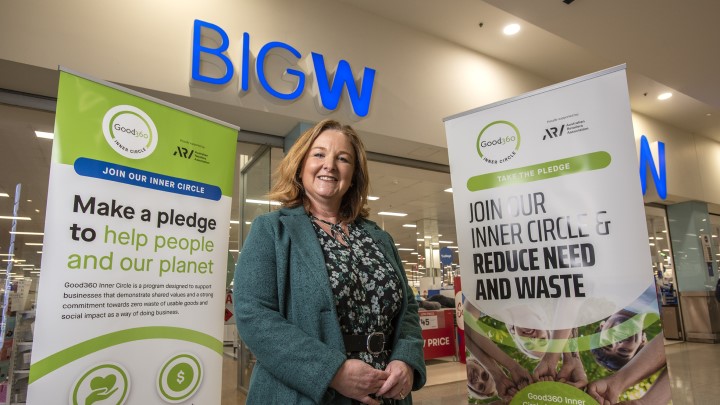Last week, retail charity Good360 kicked off a new local program aimed at both helping businesses to hit their zero-waste targets, as well as delivering donated goods to those who need them most. The Inner Circle program enables Australian businesses to pass on unsold products to the charity, which will then be distributed across the charity sector to be delivered to people in need. While Good360 has acted as a conduit between retailers’ excess stock and people in need before, participan
icipants in the Inner Circle program will now receive regular data and impact reporting around their environmental and social contributions. Several large retailers have already signed up, such as Big W, Best & Less, Gildan, Koh, Edgewell, Linen House, and Winning Group, with a further 50 partners expected before the end of June 2025.
Alison Covington, founder and managing director of Good360 Australia, told Inside Retail that the charity has seen strong uptake from the retail industry, with over 35 million items delivered to Good360 over the past eight years, but that $2.5 billion of goods are still wasted every year.
“[With this initiative] we’re matching [businesses] up with over 3,500 charities that are helping people who are struggling with the cost of living crisis, but also through disasters and other circumstances,” Covington said.
“We want businesses to sign up to an initiative where they can show their customers that they have a regular way of donating goods to Good360, and show that they are on a path to zero waste. Businesses involved are committed to donate funds, volunteer their time, but we’ll also amplify their movement towards that net-zero goal.”
Giving up money and time to be a part of the Inner Circle initiative doesn’t just confer bragging rights. The businesses involved are also delivered traceable reports, which showcase their investment, as well as what impact they’ve generated.
From there, businesses can integrate that data into their own net-zero and ESG plans to ensure that they’re hitting their own targets.
Government needs to step up
Until now, it has largely been the business sector that has partnered with Good360, donating over $350 million worth of goods over the past eight years. There has so far been no significant funding from the government, but that is something Covington is looking to change.
“We now are saying it’s time for the government to provide some funding,” shesaid. “We’re calling on the government to provide $5 million [in funding] each year for the next five years, for a total of $25 million.”
That figure, Covington explained, would enable Good360 to provide over $500 million worth of goods to the communities that need it most, while also helping Australia’s retail industry to reach its zero-waste goal.
Paul Zahra, CEO of the Australian Retailers Association, agreed, adding that the initiative should be a collaborative effort between all stakeholders.
“Good360 needs to be able to scale up to deal with the volume of products that could come their way, and retailers can’t fund that – it needs to come from taxpayer funds,” Zahra told Inside Retail.
“We all need to work together to ensure that we are all doing the right thing, and the government can [be a part of that].”
To Zahra, the drive towards sustainable business practices is the ‘next big disruptor’ hitting the retail industry, and he believes that all brands are on their own journey towards a zero-waste future.
“Environmental sustainability is emerging as one of the biggest issues and opportunities for retailers, and this is going to continue to escalate over the next five years,” Zahra said.
“We’re moving on from the ‘disposable’ economy towards a ‘circular’ economy, and there’s definitely a mindset shift there. Customers who, five to 10 years ago, said that they wouldn’t be prepared to pay more for sustainable products now are; and that’s what retailers need to be prepared for.”
Zahra said that some nascent practices that could soon become industry standard, such as providing a transparent log of a product’s supply chain and manufacturing history via QR code, could expose some retailers that aren’t already putting the work in.
“This is a real journey that all retailers need to be on,” he said. “The transition to a circular economy is critical in our sector, not purely because consumers will expect us to have more sustainable models in place, but because disposable income is becoming smaller.
“People’s dollar is going to have to go further, and they’re going to use those limited purchases to align that with their values. It’s important for the industry.”

